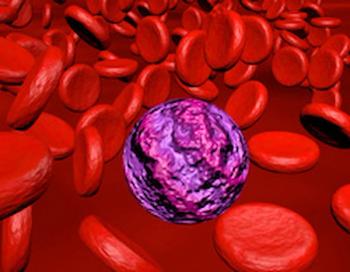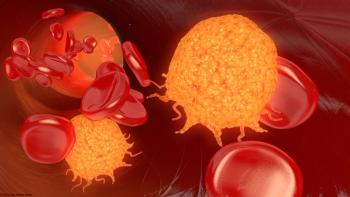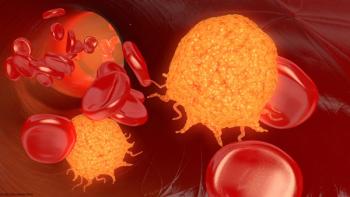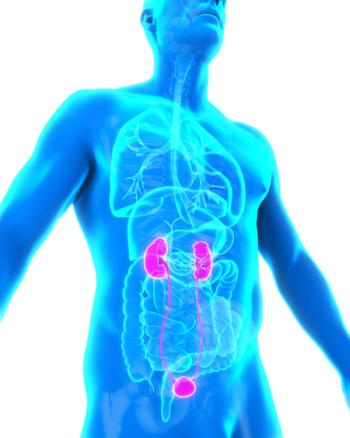
Patients who did not receive fish oil experienced a Ki-67 index increase of 24% vs the 15% Ki-67 index decrease for patients with a low omega-6, high omega-3 diet who received fish oil.

Your AI-Trained Oncology Knowledge Connection!


Patients who did not receive fish oil experienced a Ki-67 index increase of 24% vs the 15% Ki-67 index decrease for patients with a low omega-6, high omega-3 diet who received fish oil.

The safety profile of nivolumab plus relatlimab in patients with stage III/IV melanoma was consistent with the known profiles for each individual agent.

Prophylactic defibrotide conferred more ICU admissions and higher mortality among high-risk pediatric patients who underwent prior HSCT.

Artificial intelligence may have the potential to enrich pathology practices to help identify aspects of tumor biology not seen with the human eye.

Potential contributing factors of marginal zone lymphoma (MZL) were highlighted in a recent discussion with James R. Cerhan, MD, PhD.

The ARANOTE phase 3 trial showed darolutamide plus ADT improved outcomes in mHSPC regardless of disease volume.

Efficacy results from the MASAI trial preceded the creation of the UK-funded EDITH trial, assessing 5 AI platforms in 700,000 women undergoing mammography.

Phase 3 ARASENS trial results highlight the role of G-CSF in optimizing docetaxel delivery within the darolutamide-based regimen for mHSPC.

More adverse factors occurred in those with intermediate-risk prostate cancer undergoing neoadjuvant androgen deprivation therapy than those who did not.

Findings from DESTINY-Breast06 showed a PFS of 13.2 months for patients given T-DXd for HER2-low or ultralow breast cancer.

The analysis saw minimal evidence of increased relapse among patients with hematologic cancers and minimal residual disease vs those without.

Anakinra prophylaxis did not significantly decrease the incidence or severity of CRS or ICANS in patients with LBCL treated with liso-cel.

Combining sotorasib with panitumumab may reduce the burden of disease in patients with KRAS G12C-mutated metastatic colorectal cancer.

Obe-cel shows efficacy in R/R B-ALL, especially in those with a favorable CAR-HT risk profile, according to data from the phase 1/2 FELIX study.

A total of 3 patients with AML treated with the lowest dose of tuspetinib at 40 mg completed the first cycle of treatment with no dose-limiting toxicities.

The TALAPRO-2 trial revealed promising survival data for patients with metastatic CRPC treated with talazoparib and enzalutamide.

Data from the CheckMate 7FL trial may inform treatment decisions regarding preoperative immunotherapy for patients with breast cancer.

Juan Alderuccio, MD, discussed treatment strategies for MZL, particularly as they relate to quality of life, and the role of prognosis models on treatment.

Early INB-100 results showed the potential to achieve durable remissions and improve survival in patients with complex leukemias, particularly AML.

The 2025 Genitourinary Cancers Symposium will feature key updates in the management of different bladder, prostate, and kidney cancer populations.

Pertuzumab retreatment modestly improved progression-free survival and meaningfully improved overall survival in advanced nHER2–positive breast cancer.

Aditya Bardia, MD, MPH, FASCO, spoke about how the FDA approval of T-DXd in HER2-low or ultralow breast cancer will allow for a broader treatment range.

Julie M. Vose, MD, MBA, answered questions about the significance and potential impact of MZL Workshop.

Data from the ECHELON-3 trial support the approval of the brentuximab vedotin combo in relapsed/refractory B-cell lymphoma.

Findings from the phase 2b ReNeu trial show significant pain relief with mirdametinib in adult and pediatric patients with NF1-PN.

Findings from the CodeBreak 300 study have cemented sotorasib/panitumumab as a third-line treatment option for KRAS G12C-mutated colorectal cancer.

The dispersible tablet formulation of mirdametinib may offer convenience to patients with NF1-PN and difficulty with swallowing pills.

Findings from the phase 2b ReNeu trial support the approval of mirdametinib for patients with neurofibromatosis type 1-associated plexiform neurofibromas.

Efficacy results from the phase 1/2 LINKER-MM1 trial evaluating linvoseltamab in relapsed or refractory multiple myeloma support the decision.

A pathologist discusses the challenges of diagnosing nodal MZL, including its lack of specific defining characteristics.